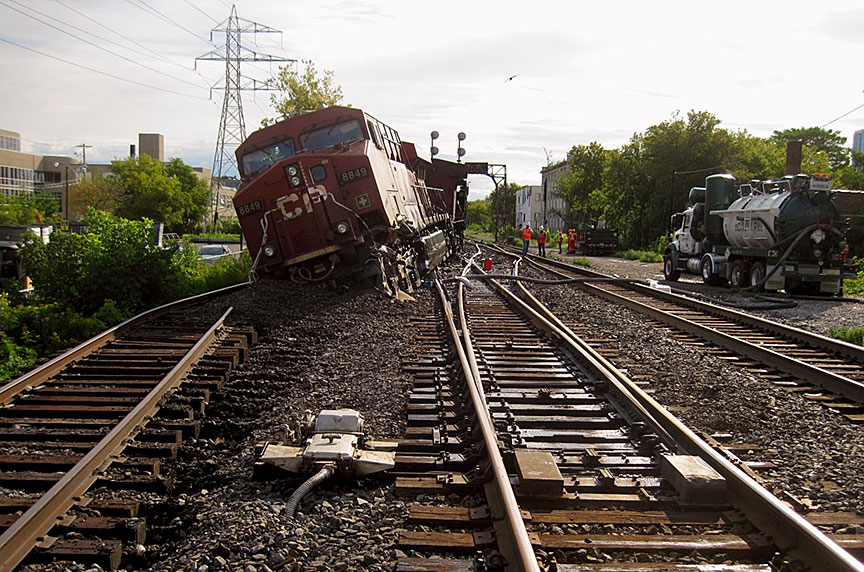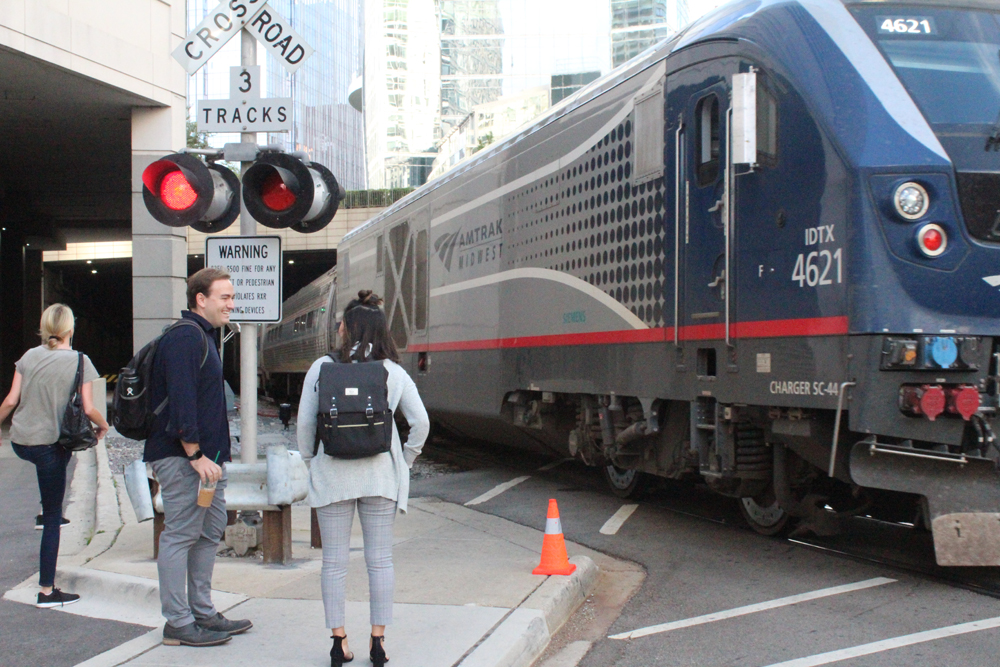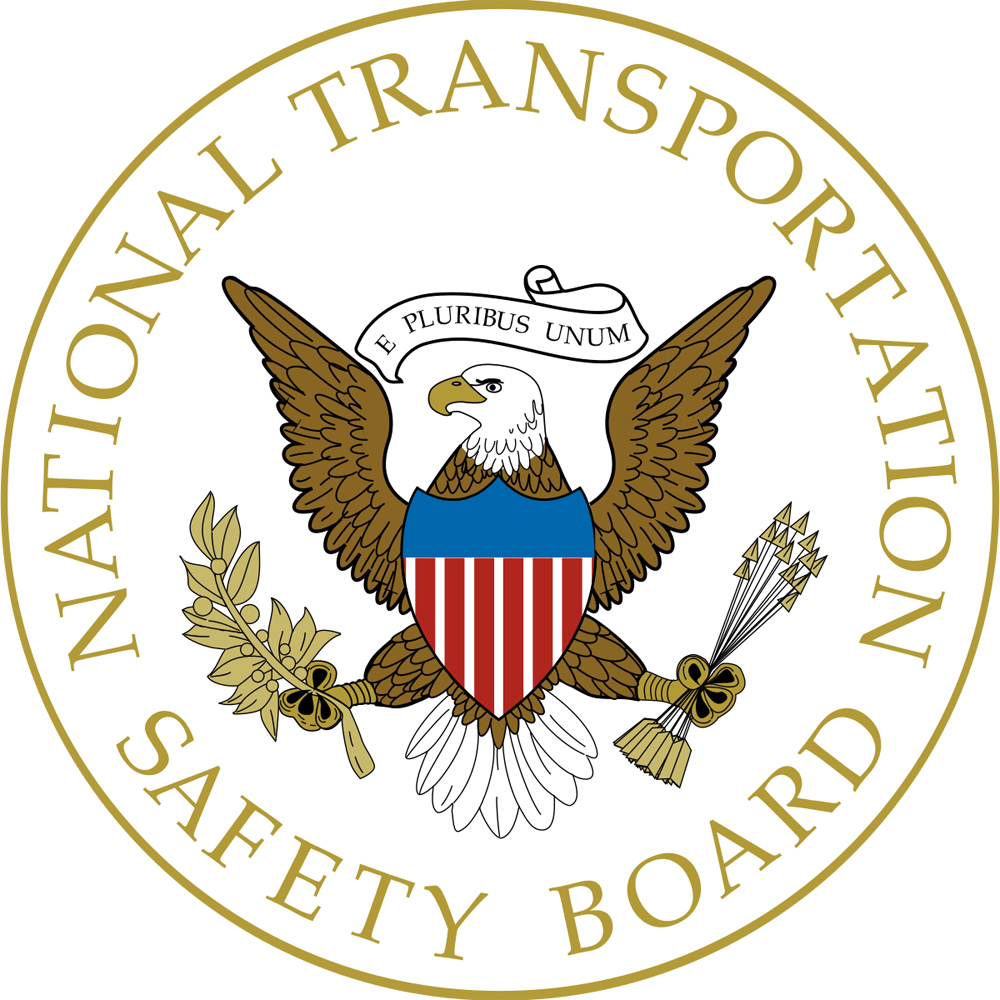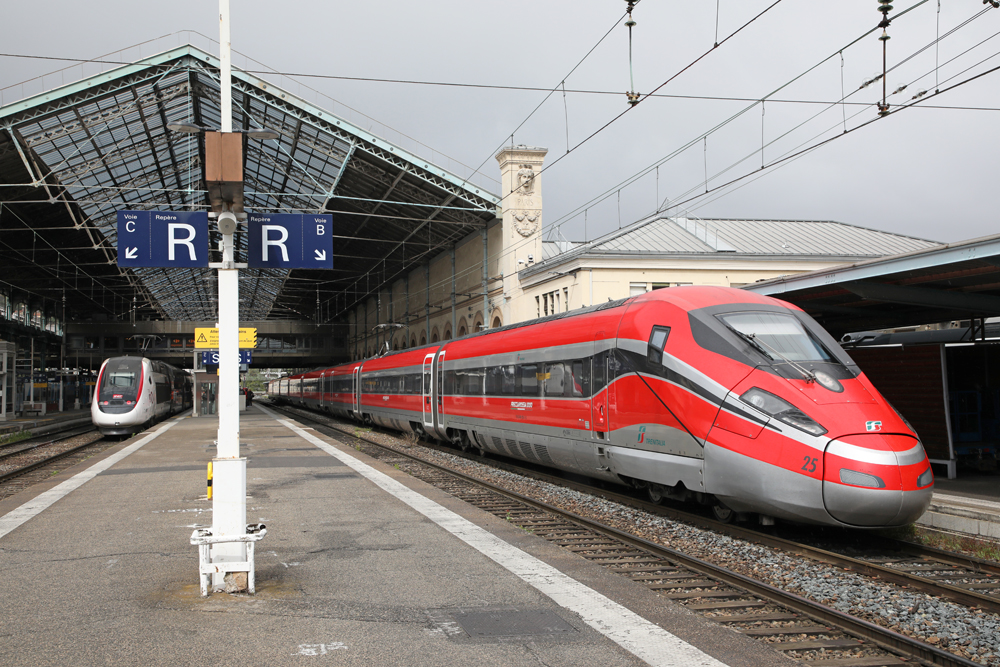On Aug. 21, 2016, an eastbound CP freight train with two locomotives and 24 loaded cars was crossing over from the north to south track along the railroad’s North Toronto Subdivision in Toronto. At the same time, a westbound train with two locomotives was approaching the same interlocking on the north track. As it reached the crossovers, the westbound train collided with the tail end of the eastbound train, causing the westbound train’s two locomotives to derail.
Four of the intermodal cars at the tail end of the eastbound train were also struck and damaged, with four of the platforms derailing upright. The derailment also punctured the fuel tank of the westbound train’s lead locomotive resulting in the loss of about 660 gallons of diesel fuel.
Several small fires were extinguished on scene and the westbound train’s conductor sustained injuries.
Investigators determined the crew of the westbound train had continued past an advanced signal warning the train crew to be prepared to stop at the next signal. According to the agency’s report, the crew continued westbound without slowing down or preparing to stop.
As the train approached the incident location, the train crew had approximately 42 seconds to respond to the upcoming stop signal. Investigators say reviewing the timetable, observing the eastbound train, and searching for a reported trespasser diverted the crew’s attention. As a result, braking was not initiated until it was too late to safely stop the train.
Investigators say the August 2016 incident highlights the need for on-board voice and video recorders on Canadian railroads. According to the agency, an on-board recording could have provided investigators with information to better understand why the westbound train did not respond to the advanced signal indication.
In the aftermath of the derailment, CP issued bulletins to clarify speed reduction requirements when passing railroad signals and to clarify the need for a radio broadcast of the signal indication being displayed at certain locations.
Transport Canada did conduct an administrative investigation into railroad signal rules violations and issued a fine to CP as a result.
See the news release online.















You might also find this commentary received from a friend of some interest.
“Thanks for sharing. The engineer who went past the stop signal is a friend of
mine. As mentioned in the synopsis, there were a lot of mitigating
circumstances, but as he has explained to me, in the end, it was his fault. Not
mentioned is the fact that the conductor was a rookie, something my friend says
he should have taken into consideration at the time. Also, they were running
light, and with the Harrison culture of fear that was so real at the time, crews
were so focused on the little things (one mph too fast and you’re out of service
for a speed violation, a few mph below, and you’re out of service for delaying a
train) that sometimes it was easy to forget the big things. Keeping a constant
speed can be a challenge with light power. Hopefully, he will get back to work
soon.”
PTC would prevent this. On-board voice and video recorders might help the investigators but wouldn’t prevent the accident.
Good thing EHH has moved on. He would probably deduct the fine from the employees’ pay or retirement account.